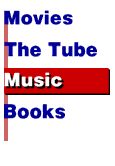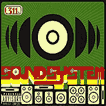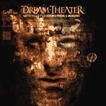|
|
||||||||
|
NOVEMBER 1999
|
FEATURE
ALSO THIS MONTH
LAST MONTH |
KEVIN RIDOLFI Rock music should punch you in the gut, wake you up and all the while give
you something substantial to chew on. Style-shifting masters, Stone Temple
Pilots, manages to do just this on their eagerly awaited fourth release, simply
titled "No. 4". In the three years since their last album, "Tiny Music...", the quartet has
experimented with new sounds - and in singer Scott Weiland's case a renewed sense of rock star immortality.
While the rest of the band took a bad detour with their Weiland-less side project
Talk Show (1997), they have seemingly realized that the key to their success lays
in the unreliable hands of their troubled singer. Weiland has been in and out of prison and rehabilitation centers, but when
his band mates can get him to focus on music the results are amazing as evidenced
by "Sour Girl" and "I Got You", two tracks that showcase both the band's
diversity and Weiland's melodic gift. In large part, "No. 4" manages to avoid falling into a niche - something
that, contrary to popular belief, is the most tell-tale trait of STP. They had
been labeled Pearl Jam clones on their first album "Core" (1992) before moving
onto the more melodic Beatles-influenced "Purple" (1994). They switched gears
again with "Tiny Music" and continue the pattern on "No. 4". STP, is simply put,
the most creative force in rock today, relying on the merits of their songs
rather than hiding behind smoke and mirrors like so many of their contemporaries.
This, along with Limp Bizkit and Godsmack's seige,
bodes well for a resurgence of the rock genre. Want proof that rock is on it's
way back? Lend an ear to Stone Temple Pilots burning through "Down", "No Way Out"
and "Heaven & Hot Rods". As for hope for the future: STP keeps improving with
age.
------------------------- 311 has made a career - that now stretches to five studio albums - by
combining fantastic syncopated rhythms with upbeat guitars and sing-a-long
lyrics. They will, however, fall forever victim to the stoned slacker image they
project - after all they do have a song called "Who's Got the Herb?" But you would
be remiss to judge this book (or album) by it's cover. There's far too much good
music on each of their albums to miss out. "Soundsystem" is no different than the rest of 311's catalog - a lack of
growth that has been one knock on the band. Granted much of their music sounds
similar, but chalk that up to the development of a sound and a unique style
rather than to any lazy rehashing. I can spot a Rolling Stones song from a mile
away; are they retreads? The first single "Come Original" is pure 311, recognizable from the start.
Their song structures revolve around bravado lyrics (one of those bands who feels
the need to mention their name in every song, a stylistic loan from rap),
futuristic sounds (which has been a constant since their "Transistor" album and a
high-energy rhythm section. Drummer Chad Sexton is easily the most talented band
member and he shapes each song by effortlessly moving through an expansive bag of
tricks that borrows from Ska, reggae, metal and fusion. Fitting that 311's sound
can be described as a conglomeration of these parts as well.
------------------------- Dream Theater's fifth studio album is the most artistic and profound
progressive rock album since Queensryche recorded "Operation: Mindcrime" in 1988.
"Scenes from a Memory", a concept album, is comprised of one lengthy composition
consisting of two acts made up of 12 scenes. While their previous work has been
ambitious, none contained this focus and thematic consistency. The album tells the story of a young girl's murder in 1928 through a
narrator who is in and out of professional hypnosis throughout. This device makes for quality
story telling since it allows the narrator to recount the past while still
remaining grounded in the presence. The quintet's instrumentation and
orchestration paint the mood perfectly, weaving between the lyrics and vocal
interaction in a blinding dance of technical prowess. With their previous albums, Dream Theater seemed intent (and content) to
simply show off their enormous abilities, to the point where they sacrificed the
potential audience that their very first single "Pull Me Under" (1992) teased.
Now their music, while still inventive and unique, has cohesiveness. This may be
due to the fact that all of the band members have moonlighted in challenging side
projects away from Dream Theater in the last couple of years. These groups, Platypus, Liquid Tension
Experiment and various tribute albums, allow them to spread their musical wings on their own
time and dedicate the band time to playing as a unit rather than competing
individuals. The results are impressive and should go down as one of the more
important progressive rock works in the same category as Rush's "2112" and Pink
Floyd's "The Wall". KEVIN RIDOLFI of Pawtucket, RI, is the creator and editor of Renaissance Online Magazine. He can be reached at [email protected] |
|||||||
 |
||||||||
|
Full Issue Contents | FEEDBACK | Questionnaire | Archive | Free Subscription |
||||||||






